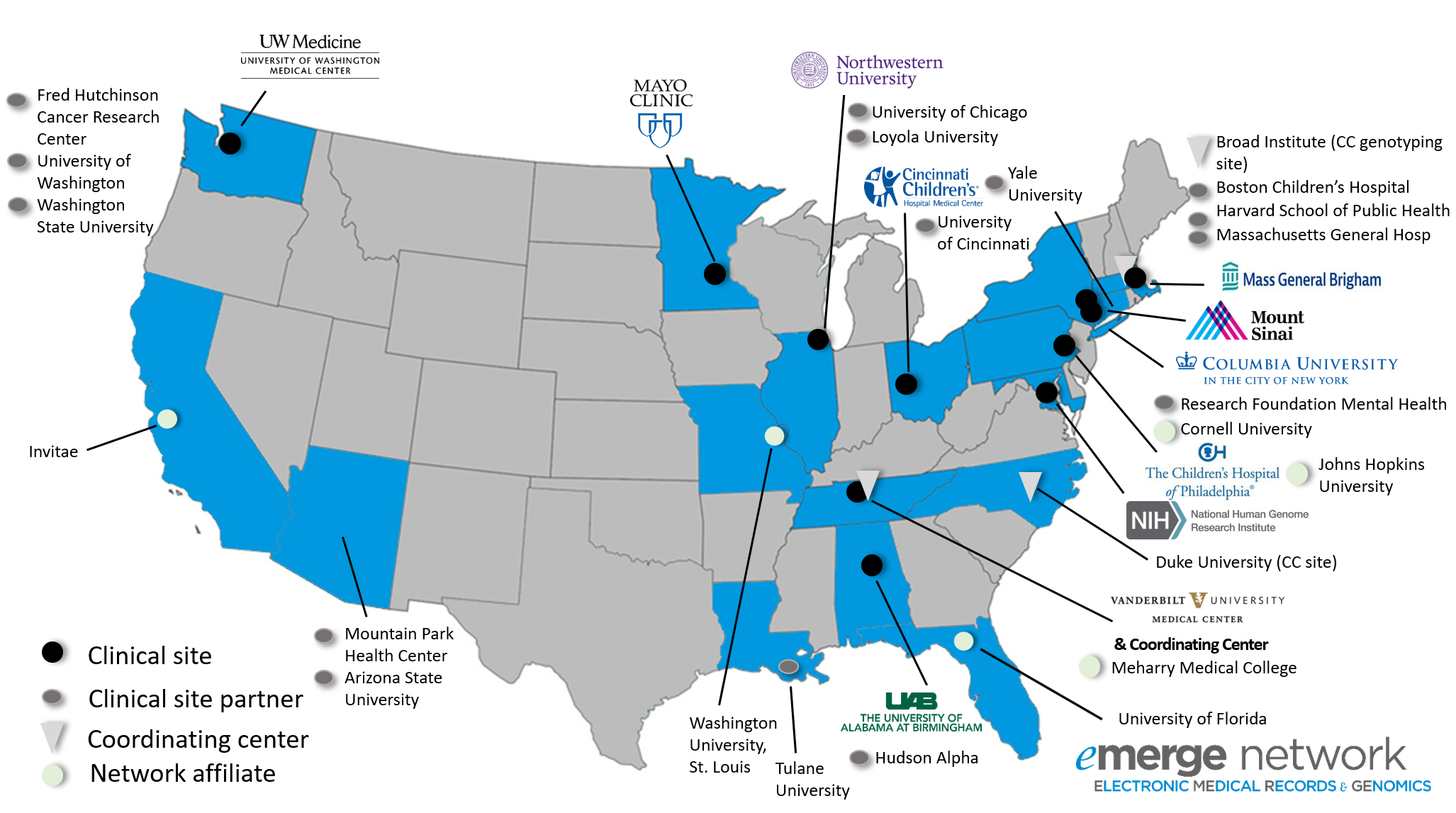Current Network Participants

Workgroups and Missions
| Working Group | Co-Chairs | Goals |
|---|---|---|
|
Comprehensive Risk Assessment and Return |
Gail Jarvik, |
|
|
EHR Workflow & Infrastructure |
Robert Freimuth and |
|
|
Phenotyping |
Wei-Qi Wei and |
|
|
Provider Uptake & Outcomes |
Nita Limdi |
|
|
PRS Validation & Evaluation |
Eimear Kenny |
|
|
Recruitment, Retention, sIRB & ELSI |
Wendy Chung, |
|
Staff
Program Directors

Robb Rowley, M.D.
- Program Director
- Division of Genomic Medicine

Dave Kaufman, Ph.D.
- Program Director
- Division of Genomics and Society

Rene Sterling, Ph.D., M.H.A.
- Program Director
- Division of Genomics and Society
Program Analysts

Jahnavi Narula, B.S.
- Scientific Program Analyst
- Division of Genome Sciences
Last updated: February 14, 2023